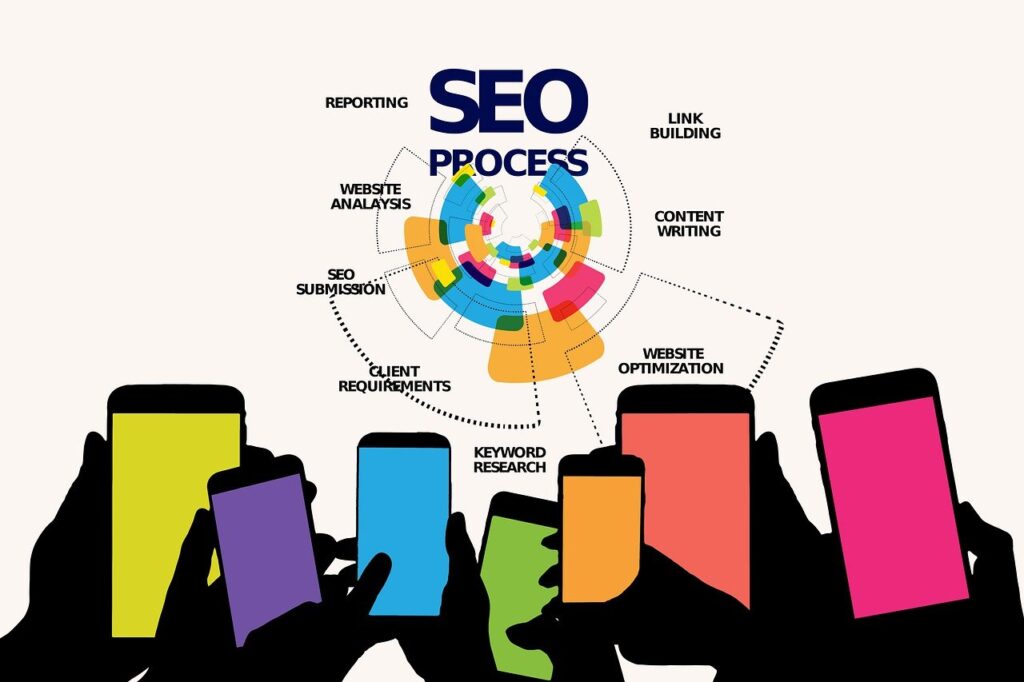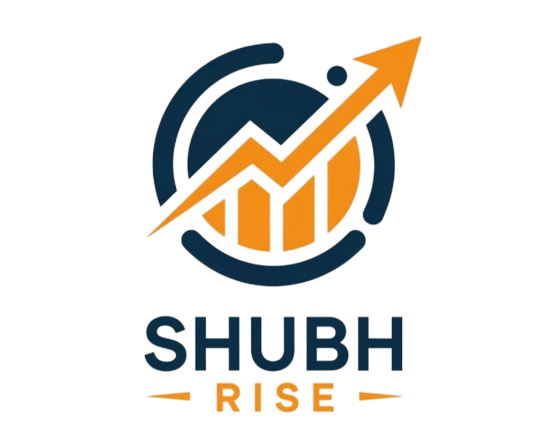In the modern world, everything is searched online before a purchase, Search Engine Optimization (SEO) plays a crucial role in digital marketing success. Whether you’re a small business owner, a content creator, or part of a global brand, understanding what is SEO and how it works is key to growing your online presence and attracting potential customers.
In this blog, we will discuss about the fundamentals of SEO, and explore its various types like on-page and off-page SEO, and technical SEO, understand the importance of backlinks, look into tools like Google Search Console, and see how search engine optimization agencies and SEO marketing digital strategies contribute to a successful search engine marketing campaign.

What Is SEO and How It Works?
SEO, or Search Engine Optimization, is the practice and the process of optimizing your website so that it ranks higher in search engine results pages (SERPs), or search engine platforms like Google, Bing, and Yahoo. The ultimate goal is to increase organic (non-paid) traffic to your site.
How It Works
Search engines use algorithms to determine the most relevant and authoritative web pages for any given search query. These algorithms consider hundreds of ranking factors such as keywords, content quality, site speed, mobile-friendliness, user experience, and more.
Here’s a simplified step-by-step of how SEO works:
- Crawling: Search engine bots crawl web pages across the internet to collect data.
- Indexing: The collected data is indexed or stored in a massive database.
- Ranking: When a user types a query, the search engine retrieves relevant pages and ranks them based on relevance and authority.
Implementing SEO properly ensures your pages appear closer to the top of the SERPs, increasing visibility and driving traffic.
Types of SEO
For fully understand about what is SEO and how it works, you need to understand the different types of SEO. Each serves a specific purpose in improving your site’s ranking.
1. What Is On Page SEO?
On-page SEO refers to all optimization techniques applied directly to your website content. This includes:
- Using relevant keywords
- Creating high-quality, engaging content
- Optimizing title tags and meta descriptions
- Using proper headers (H1, H2, etc.)
- Internal linking structure
- Optimizing image alt tags
Essentially, on-page SEO is about making your content more readable and understandable—for both users and search engines.
2. What Is Off Page SEO?
Off-page SEO, on the other hand, involves external factors that impact your site’s credibility and ranking. This primarily revolves around backlinks in SEO—links from other websites pointing to your content.
Other off-page techniques include:
- Social media marketing
- Influencer outreach
- Guest blogging
- Online reviews and brand mentions
What is off page SEO in a nutshell? It’s about building your website’s authority and trustworthiness in the eyes of search engines.
3. What Is Technical SEO?
Technical SEO refers to backend improvements that help search engines crawl and index your site more efficiently. These include:
- XML sitemaps
- Mobile optimization
- Secure HTTPS protocols
- Fast page load speeds
- Structured data (schema markup)
- Eliminating duplicate content
Understanding what is technical SEO is vital because even the best content won’t rank well if your website has crawling or indexing issues.
The Role of Backlinks in SEO
One of the most critical components of search engine optimization is backlinks.
What Is Backlink in SEO?
A backlink is a link from one website to another. In SEO terms, backlinks act as “votes” of confidence. When reputable websites link to your content, search engines interpret it as a sign that your content is trustworthy and valuable.
There are two types of backlinks:
- DoFollow backlinks: Pass SEO value and help improve rankings.
- NoFollow backlinks: Do not pass SEO value but still drive referral traffic.
Why are backlinks in SEO so important?
Because Google’s algorithm weighs backlinks heavily when determining rankings. More high-quality backlinks = higher authority = better SERP rankings.
Tips to earn backlinks:
- Create shareable content
- Write guest posts
- Reach out to bloggers/influencers
- Get listed in online directories
- Use tools to find broken backlinks and offer your content as a replacement
Search Engine Marketing vs SEO
People often confuse search engine marketing (SEM) with search engine optimization (SEO). While they are related,but they’re not the same.
SEO vs SEM
- Search engine optimization focuses on earning traffic organically through optimization.
- Search engine marketing includes both organic and paid search strategies (like Google Ads).
In short, SEO is a part of SEM, but SEM goes a step further by incorporating pay-per-click (PPC) advertising to immediately appear at the top of search results.
If you want long-term growth, invest in SEO. If you want instant visibility, go for SEM. Ideally, a combination of both yields the best results.
What Is SEO Marketing Digital?
The term SEO marketing digital refers to how SEO integrates within the broader digital marketing ecosystem. Digital marketing includes all online strategies for promoting products or services, such as:
- Email marketing
- Content marketing
- Social media marketing
- Affiliate marketing
- Video marketing
SEO marketing digital is often the foundation of a successful digital strategy. If users can’t find your site on search engines, your other marketing efforts might not reach their full potential.
Benefits of integrating SEO into your digital marketing:
- Increased brand visibility
- Higher credibility
- Better ROI over time
- Enhanced user experience
Using Tools Like Google Search Console
To track your SEO progress, tools like Google Search Console are invaluable.
What Is Google Search Console?
Google Search Console is a free tool from Google that helps you monitor, maintain, and troubleshoot your website’s presence in Google Search results.
Key features include:
- Checking site performance and traffic
- Monitoring mobile usability
- Submitting sitemaps
- Identifying indexing issues
- Reviewing backlinks
By leveraging Google Search Console, you can make data-driven decisions to continually improve your SEO efforts.
The Importance of Search Engine Optimization Agencies
Implementing SEO can be complex and time-consuming, especially for large websites or businesses lacking internal expertise. This is where search engine optimization agencies come into play.
What Do SEO Agencies Do?
- Conduct SEO audits
- Research keywords
- Optimize on-page and technical elements
- Build backlink strategies
- Monitor analytics and KPIs
- Provide detailed reports
Hiring professional search engine optimization agencies ensures you’re always aligned with the latest algorithm updates and best practices.
Choosing the right agency involves evaluating:
- Their portfolio and case studies
- Reviews and testimonials
- Transparency in reporting
- Use of white-hat SEO techniques
The Future of SEO in Digital Marketing
Understanding what is SEO and how it works is no longer optional—it’s essential. As search engines evolve, SEO strategies must evolve too.
Looking ahead, here are a few trends shaping the future of SEO:
- AI and machine learning: Tools like Google’s RankBrain influence search results based on user behavior.
- Voice search: Optimizing for conversational queries and long-tail keywords is becoming crucial.
- E-A-T (Expertise, Authoritativeness, Trustworthiness): Google is focusing more on the credibility of content sources.
- Mobile-first indexing: Your mobile site matters more than your desktop version.
- Core Web Vitals: Page speed, responsiveness, and visual stability now directly impact rankings.
Conclusion
So, after understanding, what is SEO and how it works boils down to optimizing your website—technically, structurally, and content-wise—to rank higher in search engine results and attract more organic traffic.
From what is on page SEO and what is off page SEO, to understanding what is technical SEO, what is backlinks in seo, and how tools like Google Search Console support your strategy, each aspect contributes to a successful SEO campaign.
Whether you’re doing it yourself or working with search engine optimization agencies, investing in SEO marketing digital is one of the most sustainable and cost-effective ways to grow your business online.
And always Remember, SEO is not a sprint—it’s a marathon with long-lasting rewards
